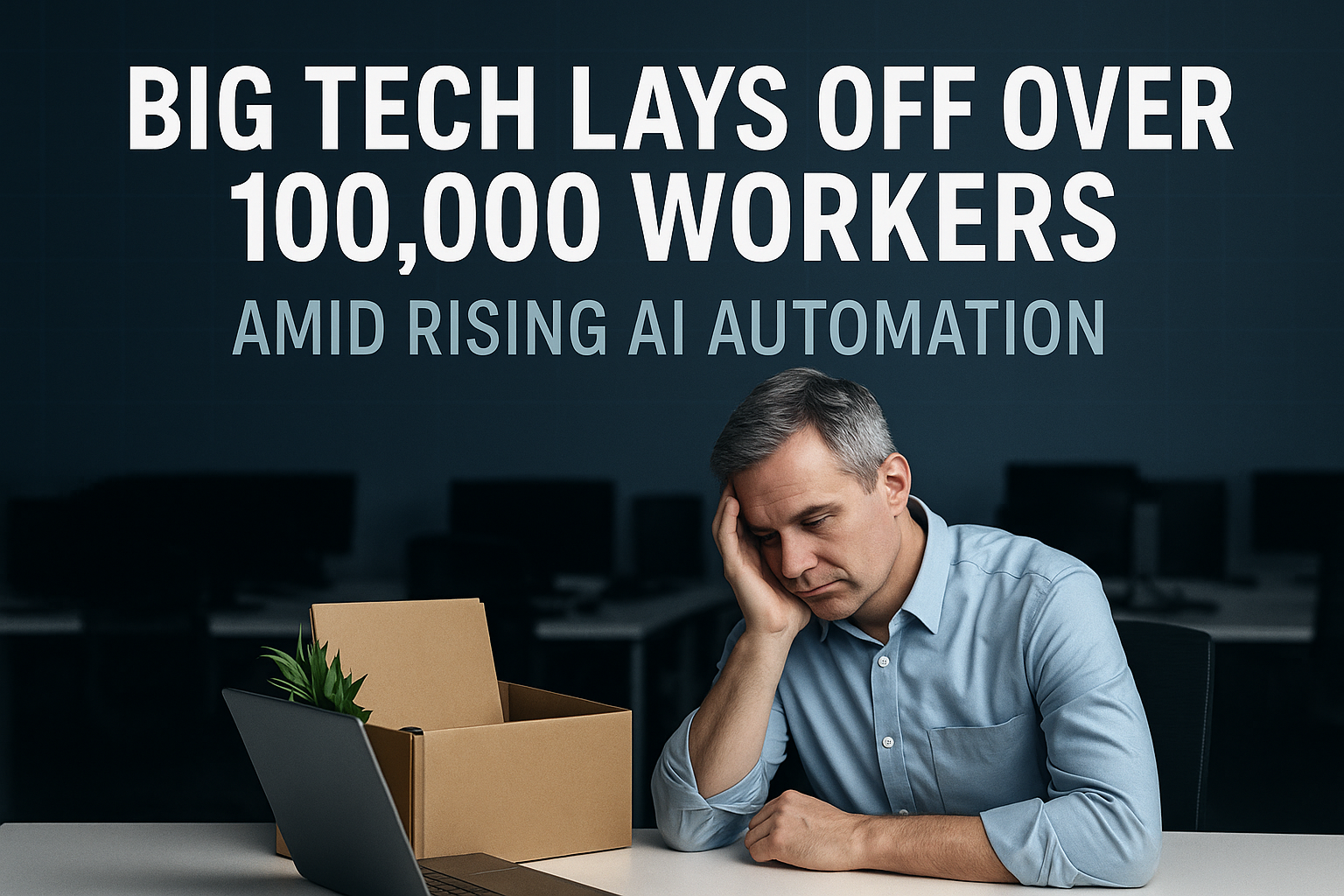CES 2026: How Emerging Technology is Shaping the Year Ahead
An expert breakdown of CES 2026, exploring how robotics, intelligent devices, and next‑gen computing are shaping technology and professional workflows in 2026.

Over 100,000 jobs have been lost in Big Tech this year, driven by rapid AI automation. Entry-level roles in customer service, recruiting, and programming are being replaced at scale.
In a year already marked by disruption, Big Tech has crossed a sobering milestone: more than 100,000 jobs cut in 2025 alone. From Silicon Valley giants to global software firms, layoffs have swept across the industry at an unprecedented pace.
And the primary force behind this wave of job losses? AI automation.
Table of contents [Show]
While automation has been a topic of conversation for years, 2025 has proven to be a turning point. What was once speculation is now reality. AI is not just assisting workers—it’s replacing them, especially in roles that involve structured, repeatable tasks.
The most affected departments include:
From Amazon to Meta, Microsoft to Salesforce, the pattern is clear: AI is being implemented as a cost-cutting measure and a productivity booster, but the human toll is significant.
Perhaps the most worrying trend isn’t just the layoffs—it’s who is being laid off.
Many of the 100,000+ job cuts in tech this year have targeted entry-level and mid-tier knowledge workers. These are the employees typically fresh out of college or climbing the early rungs of the career ladder.
For decades, tech roles like customer support rep, junior developer, admin assistant, and product researcher were viewed as safe, scalable pathways into the industry. But now, companies are filling those same roles with AI agents that work faster, cheaper, and around the clock.
This shift has sparked concern among labor experts, who warn of a “lost generation” of workers who may never get the foundational experience needed to advance in the industry.
The economics are hard to ignore.
With tools like ChatGPT, GitHub Copilot, Perplexity’s Comet, and AI-powered CRMs, executives are under pressure to trim staff and increase profit margins in a competitive landscape.
While some firms publicly cite “restructuring” or “market conditions,” the underlying motive is clear: AI offers an immediate ROI.
Despite the bleak headlines, not every job is on the chopping block. Roles that require:
are still safe—for now.
Senior engineers, designers, AI ethicists, product managers, and hybrid roles that blend tech and people skills continue to be in demand. However, the bar for entry is rising, and the middle is rapidly being hollowed out.
2025 is shaping up to be the year that tech turned inward, automating away its own workforce. For companies, it’s a path toward leaner, smarter operations. For workers, it’s a wake-up call.
We’re entering a world where AI isn’t just a tool—it’s a replacement for traditional roles. The future belongs to those who can adapt, upskill, and stay ahead of the curve.
Because in the age of AI, doing the same job you did last year might not be enough to keep you employed next year.
An expert breakdown of CES 2026, exploring how robotics, intelligent devices, and next‑gen computing are shaping technology and professional workflows in 2026.
A thoughtful exploration of how modern AI tools are reshaping professional productivity in 2026, with practical insights, real world scenarios, and an honest look at limits and tradeoffs.
Looking to supercharge your productivity? Explore our comprehensive guide to the top 10 AI productivity tools offering free trials in 2026. From intelligent writing assistants to automated project management, discover which AI tools can save you hours every week. Get detailed comparisons, pricing breakdowns, and expert tips to choose the perfect tools for your workflow.
